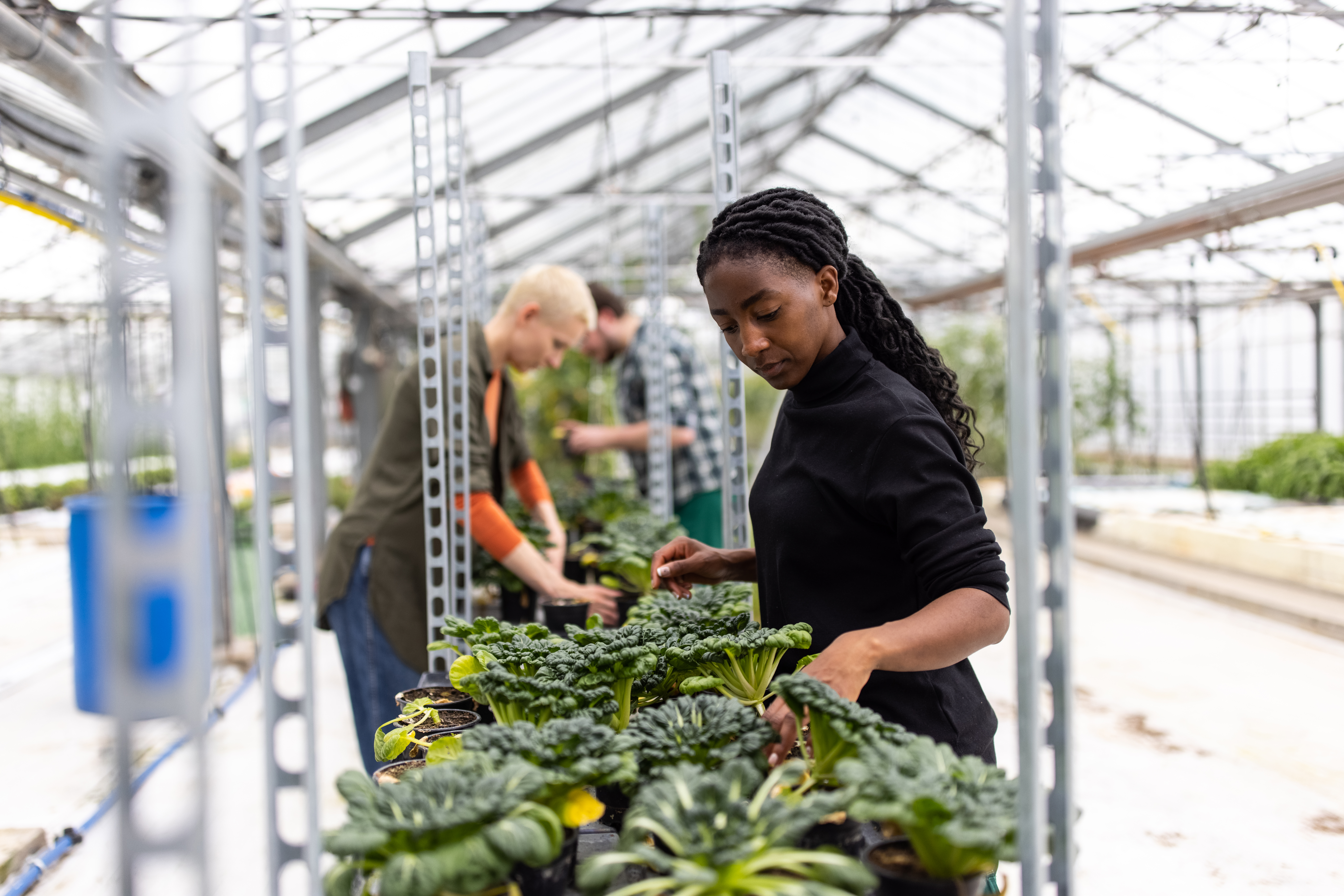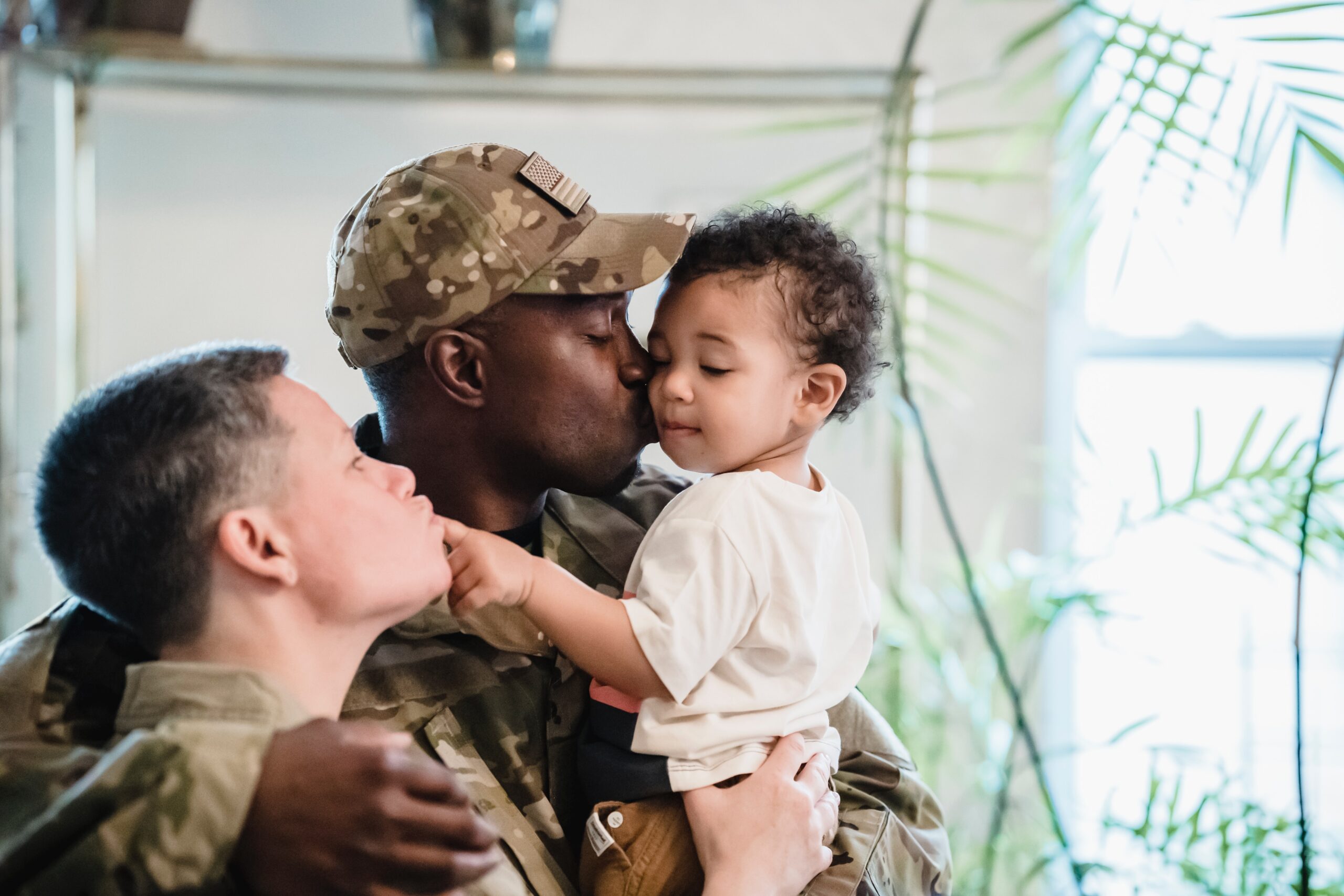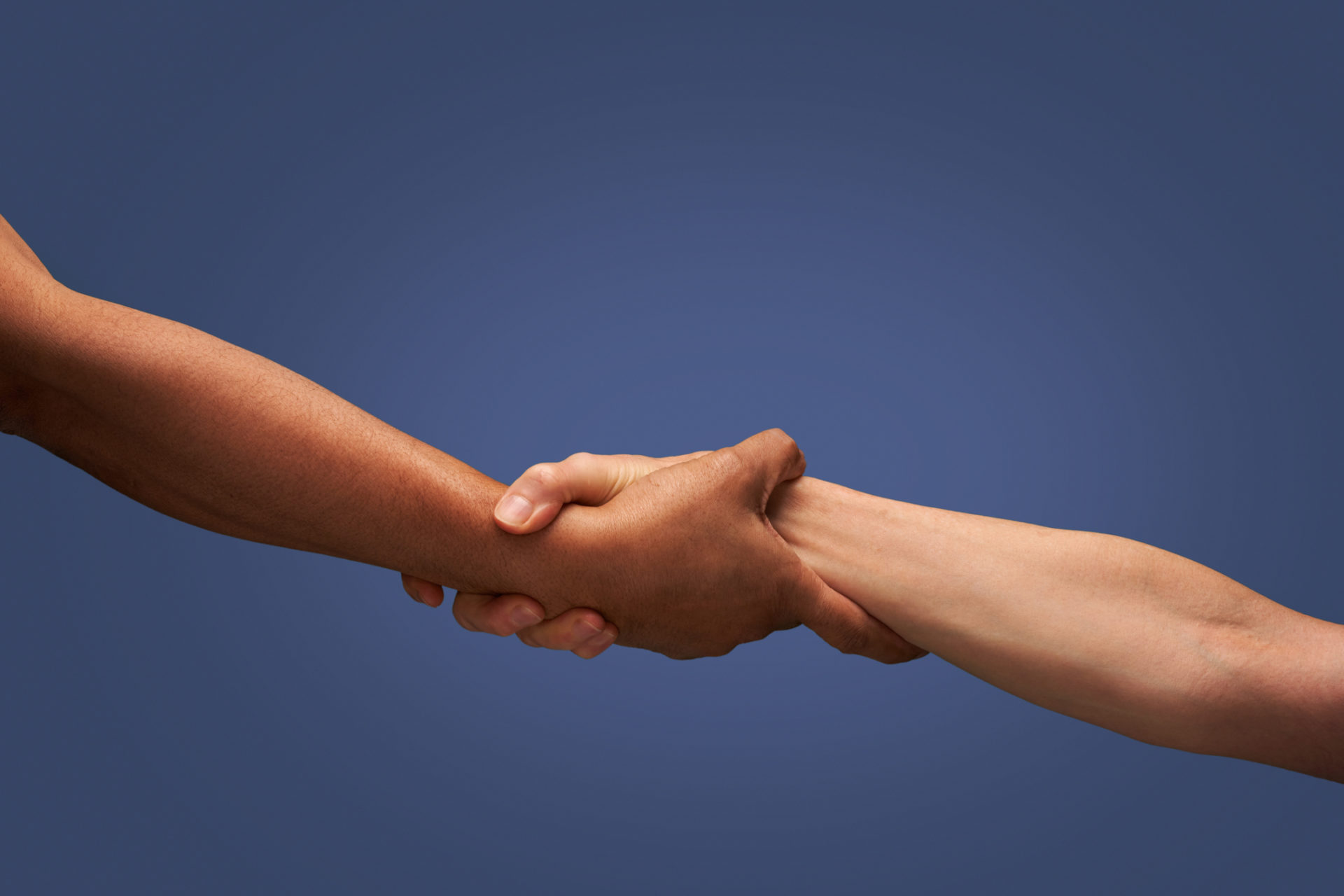In honor of Veterans Day, but also our year-round work for veterans, NationSwell sought to elevate the work of two of our partner organizations who are working to amplify military cultural awareness and leverage the unique strengths of Veterans to support American society.
In the interview below, WeTheVeterans — a nonpartisan, nonprofit organization dedicated to engaging and empowering the veteran community and their family members to engage and serve in civic roles that strengthen our democracy — and PsychArmor — a nonprofit platform that leverages the power of education and training to improve health and wellness outcomes for military-connected populations — come together to discuss the ways they’re partnering to help create a civic education framework that educates and inoculates military service members and veterans against mis- and dis information and what other like-minded leaders can do to help support that work.
NationSwell: To start off, do you think you could address a little bit of each of your individual missions, and then talk about where that work currently aligns?
Christa Sperling, Co-Founder and Board Member, WeTheVeterans: Generally, the country is facing a lot of challenges, some of which are really undermining our constitution and tearing at the fabric of our union — that’s something that’s top of mind for everybody. I think on Veterans Day in particular, we have an opportunity to talk about veteran culture in the sense that veterans and military family members across America are stepping up to serve their communities and make them better, and in the process are really working to make a better America and alleviate some of those strains that are happening.
We know that veterans vote at higher rates than their non-veteran counterparts; they speak to their families and friends about politics more than their non-veteran counterparts; they talk to their neighbors and do things in their neighborhoods more frequently than their non-veteran counterparts; they’re more likely to be involved in community organizations; to do volunteer work — all of these really good, civic-minded behaviors, veterans are already doing. So I think that there’s a great opportunity to share that message and show how veterans and military families are leaders in their community, kind of the glue that can hold everyone together, and that they can be looked to as an example of what good citizenship looks like.
For WeTheVeterans, we’re really looking to empower and inspire the veteran and military family community to be everyday champions of democracy. If we’re having all this tension in our society and we’re seeing all this polarization and distrust in our institutions, how can we rally the veteran and military family community to do those civic-minded behaviors that we know can restore some of that faith in our communities, the people in our communities, and our institutions. They’re already doing a lot of those behaviors, and the thing is that whenever folks are civic-minded and talking to their neighbors and seeing how these processes work, they’re less likely to be manipulated by misinformation. So if we can work with organizations like PsychArmor for things like civic education, then we automatically start inoculating them from these challenges that are facing a lot of Americans today.
Carole Turner, Vice President of Strategic Communications, PsychArmor: That was very well-stated Christa, that’s exactly right. With veterans and military families, the aperture is wide open, they’ve got this broader worldview because they’ve had to have that. They’ve had to follow and track news and politics, they’ve taken an oath to defend the Constitution, their families serve alongside them in many ways, and they’ve also got a broader cultural worldview from serving overseas and living outside the community they were raised in typically. So they are uniquely qualified to step in and address some of these issues, and I think there’s also a unique trust in military veterans that we want to leverage. I am really impressed with what WeTheVeterans has done around the #VetTheVote initiative, knowing that Americans have a trust in our military and establishing them as poll workers to help reestablish trust in government and voting and the electoral process.
So by way of background, our platform is military cultural awareness. Our organization started in the mental health space, because many veterans that needed mental health care wanted to speak to a provider that understood them. Our nonprofit was stood up to provide and train anyone who wants to more genuinely connect with or better support anyone from military culture. We have taken that and scaled it to all different areas — military to civilian transition, employment, and more. We want to take this model and apply it to WeTheVeterans’ mission and initiative so that we can then talk about military culture and train the larger population so that it will help to amplify the trust and the mission and the initiative that Christa was talking about. So that’s where our organizations are aligned. We have this model that we’ve scaled, and we now want to take it and scale it to their initiative as well with regards to democracy and creating that trust in public service.
NationSwell: Can you speak a bit more about why that continued education around civics is so important in the military community?
Carole Turner, PsychArmor: Our goal with civic education is that we want to increase information literacy and understanding — the ability for people to protect their cognitive space, to have an understanding of what information is coming in, how to interpret it and check sources, etc. By actually offering civic education, you can help inoculate against mis- and disinformation that veterans are being targeted with. We know that, statistically, a lot of disinformation by outside sources and governments is being targeted at our active duty and our veterans, but we need to make them aware of it and understand how this is coming at them. So part of our civic education piece for active duty military is that we’re looking to offer our coursework to anyone who is transitioning out of military service, to first of all engage and encourage the “service after service,” but then also to help them understand how and why they can continue to serve after leaving the military. So we do have a military and military spouse audience, and we want to both educate about mis- and disinformation, educate about our government and the Constitution they chose to serve, and help use that to both inoculate them from any targeted misinformation and also encourage them to serve the larger community once they get out.
You know, it means a lot to people to say ‘hey, you uniquely have the public’s trust.’ That’s a real boost. One thing we know is that there can be an identity crisis around the military to civilian transition. They have been defined by their service, by their role in the military, and they are vulnerable once they get out to misinformation that may be pointing them towards activities, groups, or organizations that are not in the best interest of our democracy.
Christa Sperling, WeTheVeterans: I agree, and I think it goes beyond the transition period, too. As you said, veterans and military family members are being targeted with misinformation by both foreign adversaries and extremist groups who value veterans’ voices, which can add credibility to any movement or statement as a result of the public’s trust in them. That’s one piece of this, and why it’s so important to ensure that veterans at least understand the threat that’s there and what’s happening. It doesn’t mean that they’re any more susceptible to misinformation than the average American, just that they’re targeted more often, and that’s a really important distinction.
The other piece of this is that the public tends to view veterans and military family members as experts on government and how the government works, and on civics. And the reality is that our civic education system here has just been completely depleted, so there’s no reason for anyone to believe that veterans are any more informed than the average American. If they’re going to look to veterans and military family members for information when it comes to civics and trust in what they say, then programs like the ones we can create, which will increase their civic knowledge and understanding, can be a really powerful tool to kind of calm the tensions that are flaring up in the U.S. and push back against misinformation.
NationSwell: Is this more about broad civic education, or are there certain segments of the population that you’re looking to target in particular?
Christa Sperling, WeTheVeterans: At WeThe Veterans, we’re really interested in harnessing that patriotic energy that the veteran and military family has to strengthen American democracy, and that doesn’t have to be big things like running for office; that can be little civic-minded behaviors, like knowing who your neighbors are, contacting your local politicians whenever you need something done or you’re not happy with something, getting involved in your community. We want to make sure that the veteran and military family members continue to see that as a norm after service; although some might also have political aspirations, and that’s great and we encourage that, it doesn’t have to be that big. Also, understanding that if we can amplify the voices of these veterans and share their stories, we can encourage these behaviors that we want to see in society overall.
NationSwell: And when veterans do become civically engaged after service, where do you see them participating?
Ben Keiser, Co-Founder and Board Member, WeTheVeterans: We start from the position that veterans and their family members are civic leaders and civic assets, by and large. There is a very small proportion of our community that gets a lot of airtime for having engaged in some sort of antisocial behavior, but as a community, we have to be able to look at that in the face and not be able to talk about that stuff. It’s a totally radioactive topic in this space, but I think that just means that there’s sort of a vacuum that we’ve been happy to fill. So as long as we’re talking about the strength of our community and how, by and large, veterans and military family members are leaders in their community, leaders in business, etc., we can focus on those strengths and make sure that we both police our own community but also leverage all of our strengths to kind of lead the way on these issues nationally.
Veterans and their family members are sort of put up on a pedestal, our neighbors expect or assume that we know more about civics than maybe we necessarily do. So we ought to take the opportunity to give our service members greater education so that when they are talking about this stuff with community members, they can do so with a little bit more of a basis.
Carole Turner, PsychArmor: Absolutely. They’ve got the voice, they’ve got the public’s trust, let’s make sure that the message is clearly understood. And by message, I mean the Constitutional foundation for the military — having an understanding of that and where it sits in our society so that they can message that.
Ben Keiser, WeTheVeterans: Yeah, and just basic civic functions. You’re much more resistant to misinformation if you have a stronger grasp of the function of our government and how it works. So when people are saying that elections were rigged or that the Vice President can overrule the electors, you’ll know that that’s not true because you’ve been educated, and you’ll have an easier time resisting that narrative.
NationSwell: It also seems like an opportunity for leaders and organizations that are outside of the veterans community to understand the opportunity and power of the community. A lot of people seem not to know about this issue, or that there’s a large percentage of people who are supporting a better government and stronger democracy.
Ben Keiser, WeTheVeterans: There’s a competition for the heart’s and minds of veterans right now, so those of us who are on the pro-democracy side ought to really be looking at that group, because most folks are, certainly — malicious actors both domestically and abroad. I think there’s a great case study in the VetTheVote program — if you ask veterans to serve, they’ll put their hand up.
NationSwell: Are there certain groups or types of organizations that you really hope will hear this message?
Carole Turner, PsychArmor: I think frequently the military is actually asked to be the leader in social change and social reform throughout history. We’ve seen it with immigration, racial discrimination, we see it all the time, and I think this is yet another measure of that. The one community we haven’t mentioned is medical, and this just became a huge factor during Covid as we watched the vaccination process play out and it directly impact force readiness, and mis- and disinformation about Covid then reaching our troops and our actively serving forces in a way that was incredibly disruptive to unit cohesion and thus to force readiness. So it’s exactly what Ben was saying, we’re just on the front lines of some of these major social issues, so if you can have an impact and help inoculate against misinformation in this community, the ripple effect as they transition to society and their leadership roles there is really going to be multiplied. So I think we particularly saw the need for this really become apparent during the Covid pandemic with issues of vaccination.
Ben Keiser, WeTheVeterans: Another good reason to focus on the veteran and military family community is that we’ve got a lot of structure in place. There are lots of organizations that support those communities, lots of programs in place, the Department of Veterans’ Affairs, so to the extent that you want to roll out pilot programs across an entire community that you can then bring out to broader Americans, the veteran and military family community is an ideal Petri dish, I think.
Carole Turner, PsychArmor: If you look at January 6th and you look at all the coverage around that, so much was made about the fact that 20 percent of the folks who were charged had some type of military background, and so all of a sudden there’s this finger-pointing and blame at the military community. I think for those of us at WeTheVeterans and PsychArmor, we want to make sure we are actually messaging the unique strengths of our military community — we want to provide the counterpoint to some of those myths and narratives that are out there about the military community and let the general public know the good instead of having this generalized narrative.
Ben Keiser, WeTheVeterans: That’s right. I think that’s a good indicator of what a strong aspect of our culture this military narrative is — people want to write articles about that, and there are a number of articles that have come out recently about the number of candidates who are election deniers, and the crossover of that Venn Diagram with veterans. And so from our perspective, one veteran that questions the election is too many, but we’re a diverse cross-section of people with diverse political views, of course there are going to be some veterans that fall into that category, unfortunately.
Carole Turner, PsychArmor: We often hear about the 1% of Americans who are serving, but the reality is that about 7% of the population has served. The fact that so much was made of that in the press gives truth to the fact that this is such a respected and trusted population, it kind of made the point for us. This is a population that people look to and turn to, and that was an unfortunate skew on the numbers and the way that information was communicated. Veterans are not a monolith — they’re a very diverse group, and we want to make sure that’s well-represented.
NationSwell: Is there anything specific that you need right now? Are you looking for partners in civic education for example?
Ben Keiser, WeTheVeterans: In terms of expansion plans, we’ve just gotten a large grant from the department of homeland security for resourcing and filling out a number of working groups. We’ve already set up one around misinformation, we need to stand up two more around civic education and civic engagement and public health approaches to extremist violence prevention, and then we’ll have a steering committee that sits atop those three. So we’re looking for partners — coalition partners across the spectrum. Academia, tech, funders, anyone who touches those three buckets.
Carole Turner, PsychArmor: Anybody that wants to reach out and connect with and engage with this population, we’ve made the case for why. PsychArmor can provide you with the tools to understand as you engage with that population, and WeTheVeterans has the platform to leverage that into action.








